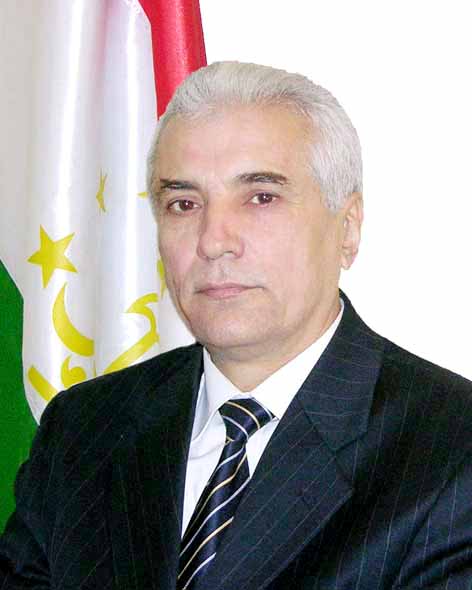DUSHANBE, May 10, 2011, Asia-Plus — Tajik Foreign Minister Hamrokhon Zarifi has delivered a statement at the 11th Doha Forum on Democracy, Development and Free Trade that opened on May 9 and is concluding on May 11, according to the Tajik MFA information department.
On the sidelines of the forum, Zarifi also held talks with Qatari Prime Minister and Foreign Minister Sheikh Hamad bin Jassim bin Jabor al-Thani to discuss cooperation issues. Tajik minister is also expected with his counterparts from other countries attending the forum.
In the meantime, Qatari Gulf Times reports the Prime Minister and Foreign Minister Sheikh Hamad bin Jassim bin Jabor al-Thani met several dignitaries who are in Doha to attend the 11th Doha Forum on Democracy, Development and Free Trade and Enriching the Middle East – Economic Future Conference. The Prime Minister held separate talks at the Doha Sheraton Hotel with Tajikistan Foreign Minister Hamrokhon Zarifi, Swedish Foreign Minister Carl Bildt, South Africa Minister of Trade and Industry, Dr Rob Davies, and the Prime Minister of Iraq’s Kurdistan Province Dr Barham Ahmad Salih. Talks during the meeting dealt with bilateral relations and topics on the agenda of the forum.
A statement by Zarifi posted on the Tajk MFA’s website, in particular, notes significant changes in socio-political lives of the global society have made global development be focused on fundamentally new directions. “It is notable that trends that are underway led to numerous positive things as well. Globalization and accessibility of technical and scientific achievements are among such advances. At the same time, the modern world is facing some other phenomena that are not acceptable for our societies. New challenges to peace and stability, political instabilities, economic and financial crises and undesirable environmental behavior could be given as examples among them.”
Zarifi noted that “democracy” was a flexible notion that covers ensuring personal freedoms in political, economic and social aspects. Therefore, economic development, free trade and democracy are interrelated.
According to him, Tajik government takes efforts to ensure personal freedoms in the country. Latest developments in Maghreb and Middle East prove the fact that poverty and lack of social justice may lead to political instability and creation of appropriate socioeconomic conditions could be considered as a way to overcome the challenge. “Therefore, Tajikistan takes efforts to carry out economic reforms,” Zarifi said, noting that moves towards joining the WTO are among the key measures taken by the government.
Tajikistan has also taken measures to strengthen economic ties with its neighbors and other nations of the world, Zarifi said, noting that Tajikistan also attaches significance to overcoming the transportation deadlock. Construction of highways in Tajikistan connecting with other countries will promote expansion of regional economic cooperation in Central Asia.
“Development of transport infrastructure in Tajikistan has also contributed to economic development in neighboring Afghanistan. Thus we can say our country has contributed to strengthening peace and stability in Afghanistan.”
International economic development and international community’s demands increase necessity for natural resources, Zarifi noted. “In this regard, accessibility to the water resources became a vital issue for the international community. Tajikistan as one of the countries rich in water resources adheres to a precise position over this issue. We think that aiming to provide a sustainable future to the international community, water should be valued at least at the same level as oil, gas, coal, as well as other fuels and energy sources. That is why, upon the initiative of Tajik President Emomali Rahmon, the 55th UN GA has announced Years 2005-2015 as an International Decade of Action “Water for Life.”
“At the beginning of the 3rd Millennium the Earth has a population of more than 6 billion. Due to unequal distribution of fresh water resources 1 billion people in Asia, 350 million in Africa, and more than 100 million in the Latin America suffer from lack of drinking water. That is why Tajikistan, possessing huge water resources has put a question of fresh water in the world as global problem.”
“Tajikistan with aim to decrease carbon dioxide emission intends to launch electricity producing in hydroelectric power stations. Tajikistan, which is Central Asian richest country in the reserves of water and power resources, for hydro and energy resources in the Central Asian region, now uses only small part of these resources through the several hydropower plants constructed mainly on the Vakhsh River. Tajikistan has decided to base its economic growth on hydropower. It is worth to say that development of the field will serve for the benefit of not only Tajikistan, it will provide the Central Asian countries as well as Afghanistan and Pakistan with electricity, and meet the requirements of the downstream Central Asian countries in water resources. For these purposes, Tajikistan runs construction of small, medium and big hydropower stations, and transmission lines in the country. In this respect, the Strategic plan for development of hydropower field of the country aimed at benefits of both Tajikistan and the entire Asian states.”




